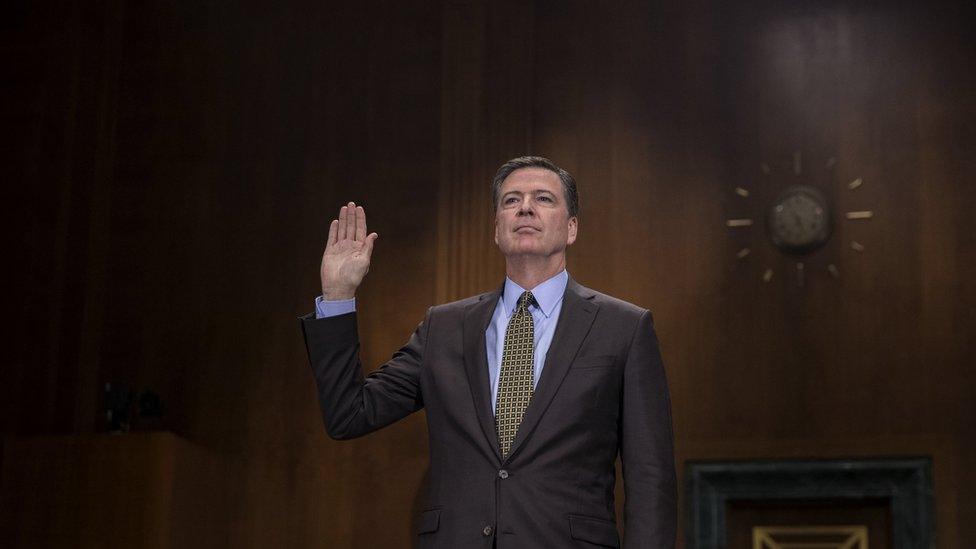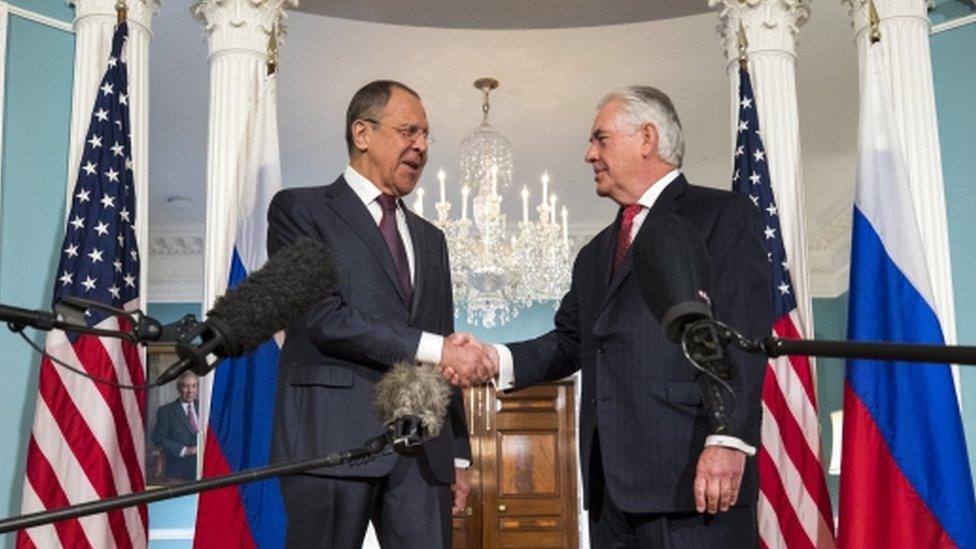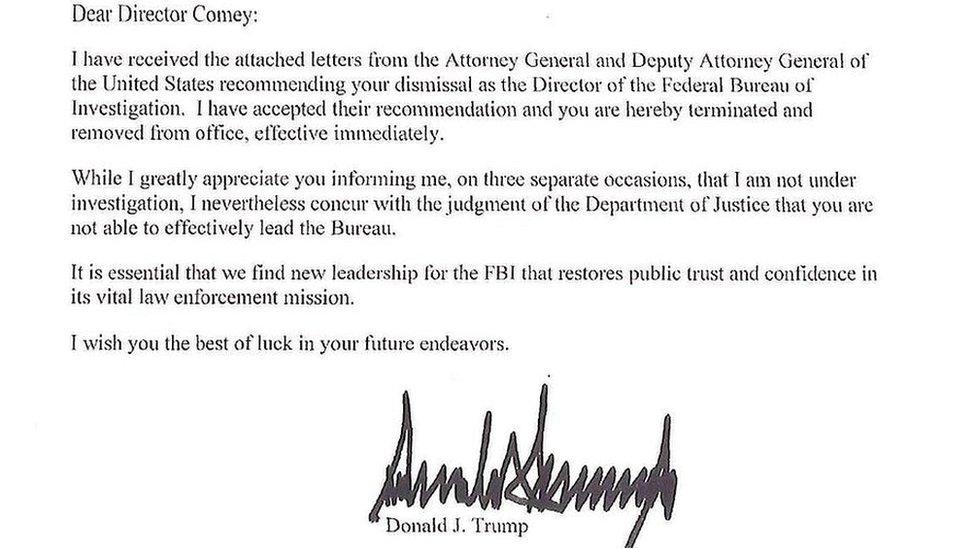FBI chief Comey sacking: Five things you wanted to know
- Published
Trump says he made the decision to fire Comey - that's not what the White House originally said.
Washington is reeling from the abrupt sacking of the director of the FBI.
The White House says that James Comey was fired for his handling of the Hillary Clinton email inquiry, but Democrats have called for the appointment of a special counsel to investigate links between Russia and the Trump presidential campaign.
The BBC's North America reporter Anthony Zurcher answers your questions on what will happen next.

Why are the Democrats now saying that James Comey should stay? Didn't Hillary Clinton, Chuck Schumer and Nancy Pelosi all say that he was doing a bad job?
Indeed there are plenty of quotes from top Senate Democrats expressing dismay bordering on disgust with the way Mr Comey handled the FBI investigation into Mrs Clinton's email server.
What do Trump supporters think about Comey's firing?
However, most of those quotes date back to November 2016. Six months are an eternity in politics, and in the ensuing time Mr Comey has become the face of the FBI's investigation into possible ties between Russia and the Trump campaign.
While many Democrats may not have been thrilled with Mr Comey, over the past few months they've come to view him as one of the few individuals independent enough to challenge the president.

Trump dug up a five-month-old tweet by comedienne Rosie O'Donnell to justify his decision

How will his successor be appointed? Will the Trump administration be the ones to dictate the position?
Donald Trump has the power to fire the director of the FBI, and he's the one who gets to hire the replacement. But it's a high-level political appointment, so whoever he picks has to be confirmed by a majority vote in the 100-seat US Senate.
Given that there are currently 52 Republicans there, as long as Mr Trump's party sticks together, Democrats will be unable to block whoever Mr Trump chooses as the nation's next top law enforcement officer.
The system is set up to insulate FBI directors from politics. They serve 10-year terms, which means their tenure is supposed to overlap multiple presidents. The last time an FBI director was fired mid-term was back in 1993. It's a rare occurrence that is fraught with political peril.

Can Mr Comey speak freely now he is out of office about these events in any subsequent hearing? Is he subject to the Official Secrets Act?
The former director is still bound by various US laws, similar to the British Official Secrets Act, that criminalise revealing classified information, as well as government policies that prohibit releasing details of an ongoing investigation.
That doesn't mean, however, that he can't shed new light on his interactions with the White House and the possible political pressure they have put him under, over the past few months, if he so desires.

FBI Director James Comey has previously testified before the Senate Judiciary Committee
Democrats are already calling for Mr Comey to return to Congress to testify about the circumstances of his firing. Mr Trump may have removed him from his post at the FBI, but he won't be able to usher him off the national stage so easily.

What does James Comey's dismissal mean for the future of the bureau?
The Trump White House, from the president down, has framed Mr Comey's dismissal as a necessary step in restoring public trust in the FBI.
It's certainly true that the former director had plenty of critics on both sides of the political divide - ones who thought the bureau would be better served with new, less politically charged leadership.
In the short-term, however, the president's move throws the FBI into chaos. The rank-and-file in the bureau were caught totally off-guard by the announcement.
The future of the Russia investigation itself is up in the air, pending further action by the Justice Department.

The Russian Foreign Minister, Sergey Lavrov, met the US Secretary of State, Rex Tillerson, on Wednesday. Mr Lavrov later met with President Trump at the White House
Mr Trump's choice for Mr Comey's successor, then, is critical. He or she is likely to be viewed with deep suspicion by Democrats, particularly if the pick has a partisan background.
The rebuilding task for the FBI will be difficult, and the Trump White House hasn't made it any easier so far.

Why did President Trump have to state in his letter firing the FBI chief that on three occasions he had assured him that he was not being investigated?
He didn't have to say that. In fact, he probably shouldn't have brought it up at all.

In the letter to James Comey, President Trump said he appreciated being told on "three separate occasions" that he wasn't under investigation
By saying that Mr Comey had assured him he wasn't under investigation - communications that were previously unreported and would be very unusual given the ongoing nature of the FBI inquiry - Mr Trump has effectively put a spotlight on the matter.

Produced by Hannah Henderson, UGC & Social News team